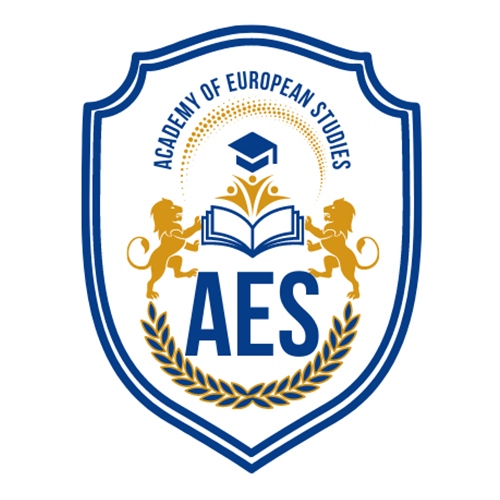School of Humanity Mission
The main objective of the Humanity Course is to promote humanistic education that will help you understand and appreciate the Outside World. We promote the idea that the study of humanities is an education that encourages students to think creatively and critically, to reason, and to ask questions, thereby IEU is the best place to start your journey!

- Frameworks with Information Resources
- Vast Amounts of Studying Programs
- Interactive Methods of Studying
- Interaction Between Different Cultures
About the Courses
- Research at the European School of Humanities focuses primarily on the interaction between culture, society, and business, which is examined from an interdisciplinary, international, and intercultural perspective. We attach particular importance to the international orientation of our programs. International doctoral dissertations assistance and research projects are an integral part of the School of Humanities.
- Name of specialty – Humanities.
- Level of Higher Education – First (Bachelor’s) and Second (Master`s) level .
- The duration of studying – 4 years of full-time studying (Bachelor`s) and 2-3 years of full-time studying (Master`s).
- Medium of Instruction – English.
Research at the School of Humanities focuses primarily on the interaction between culture, society, and business, which is examined from an interdisciplinary, international, and intercultural perspective. At the School of Humanities, we attach particular importance to the international orientation of our programs. We offer our students European education. The diploma of which is recognized worldwide. Also, International doctoral dissertations and research projects are an integral part of the School of Humanities.
The humanities pursue the study of the human experience, past and present, encompassing the study of history and art history, languages and literature, philosophy, religion, and visual and dramatic arts. Our students learn skills in critical analysis, interpretation and argument, analytical writing, and oral presentation in both individual and collaborative undertakings. They investigate how societies, cultures, human values, and everyday experiences have been transformed, represented, and remembered over time.
- Name of the specialty – Humanities
- Level of Higher Education – First (Bachelor’s) and Second (Master, Ph.D., Doctorate) level
- The List of Specializations and Educational Programs – Art History, Classics, Comparative Literature, Drama and Music, English, Foreign languages, Gender Studies
- The total amount of credits of the European Credit Transfer and Accumulation System — 360 credits;
- The duration of studying – 4 years of full-time studying (Bachelor`s) and 2-3 years of full-time studying (Master, Ph.D., Doctorate).
Compulsory Subjects
Studying curricula cover a comprehensive range of subjects. The major subjects (or modules) are:
- Languages
- Social Work
- History
- Sociology
- Philosophy
- Linguistics
- Anthropology
- Archaeology
- Classics
- Linguistics and languages
- Law and politics
- Literature
- Religion
- Performing arts
- Sociology
- Philosophy
- Music
- Human Rights and Gender Studies
- Informatics Practices
- Public Administration
- History
- Economics
- Geography
- Political Science
- English
- Home Science
- Legal Studies
- Mass Media Studies
- Entrepreneurship
- Physical Education
- Fashion Studies
- Fine Arts
Educational Process
Learning About Cultural And Social Constructs
School of Life Sciences is a versatile set of diverse academic disciplines, focused on the exploration of the way people express, understand, and recognize their human experience in this world. It involves the study of human relationships in social, cultural, environmental, economic, and political spheres. The aim is to support students in studying processes, developing their ability to question, think critically, solve problems, communicate effectively, make decisions and adapt to change as active and informed citizens.
- The Course enriches the soul and makes you a cultured individual, can help you understand, appreciate, and produce art, music, theatre, and literature.
- Students will develop important skills such as persuasive written and oral communication, creative problem-solving, teamwork, and self-management.
- Studying helps students to understand interventions and actions that can work with people to change to get better outcomes for individuals and for society.
Career Perspectives
After completing the professional education program of the specialty “Humanities” a specialist can perform professional work as:
- Travel Agent
- Archaeologist
- Social Worker
- Graphic Designer
- Human Resources Specialist
Humanities graduates understand where we have been, can reflect on the hows and whys of life, and can see how the future could be. Humanities graduates develop many transferable skills making them highly employable. A good humanities degree is a testament to your hard work, creativity, and enthusiasm. We’ll take a look at some paths students can follow at graduation:
Banking Finance. To excel in this sector, you’ll need an interest in the financial world — but your humanities degree will not hold you back. If you’re ambitious, analytical, and driven, this could be the sector for you. From client management to investor relations, trading to accounting, the banking and finance sector has a wealth of opportunities and you’ll be sure to find something to suit your strengths.
Consulting. All graduates enjoy tackling intellectual challenges — and as a consultant, that’s at the heart of your role. The skills you’ve acquired in your degree are sought after by leading consultancy firms.
Law. In Law, the ability to read large volumes of research and synthesize the key ideas into one or two succinct messages is a skill humanities students are highly trained in. With a keen eye for detail, you’ll have the chance to put everything you’ve learned at university into practice. Armed with your degree, if you’re dedicated and tenacious a career in Law beckons.
Marketing, Media, PR, Publishing Journalism, Consumer Retail. These sectors are perceived to be the more traditional career routes for humanities graduates. Combining your creative thinking and problem-solving skillsets is often why graduates find these are the routes for them. What’s more, with the ever-changing technology and digital landscape, new opportunities and roles in these sectors are popping up all the time and, as a bright graduate, you have the potential to excel.
